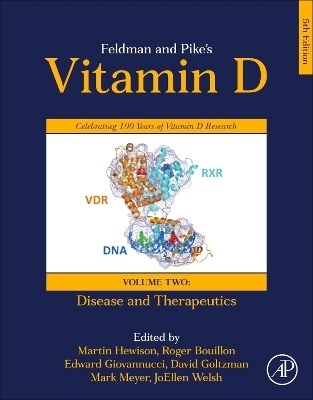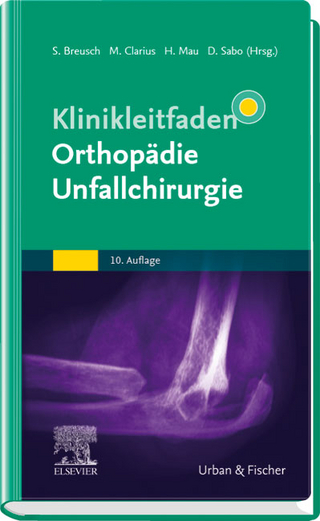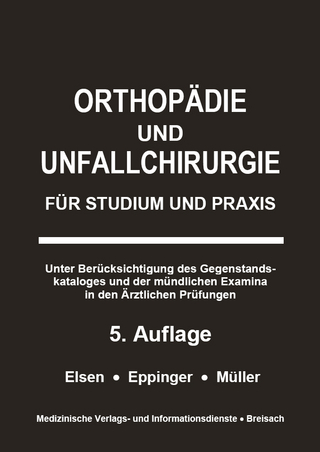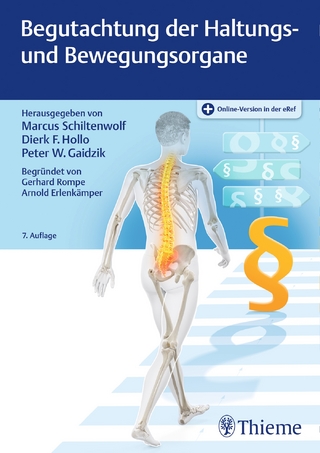
Feldman and Pike’s Vitamin D
Academic Press Inc (Verlag)
978-0-323-91338-6 (ISBN)
In Volume I: Biochemistry, Physiology and Diagnostics, international experts in endocrinology, bone biology, and human physiology take readers through the basic research of vitamin D. This impressive reference presents a comprehensive review of the multi-faceted actions of vitamin D relating both to skeletal and extra-skeletal action. Researchers from all areas of vitamin D will gain insight into how clinical observations and practices can feed back into the research cycle and will, therefore, be able to develop more targeted genomic and proteomic insights into the mechanisms of disease.
Volume II: Health, Disease and Therapy authoritatively covers the evidence for new roles of vitamin D, ranging from organ transplantation to cancer, diabetes, inflammatory bowel disease, multiple sclerosis, and renal disease. The coverage is appropriately broad, drawing on aspects of internal medicine, pediatrics, nutrition, orthopedics, oncology, neurology, obstetrics and gynecology, and immunology, as well as, new areas for vitamin D including sports medicine, opthalmology, veterinary medicine and ICU care – including COVID-19. Clinical researchers will gain a strong understanding of the molecular basis for a particular disease and better understand future directions for research in this still-growing field.
Prof. Hewison’s work focuses on different facets of vitamin D physiology, including classical skeletal effects and non-classical extra-skeletal effects. He has a particular interest in the interaction between vitamin D and the immune system, where antigen-presenting cells such as dendritic cells and macrophages synthesize active vitamin D (calcitriol) and also express the nuclear receptor for calcitriol (VDR). Vitamin D can therefore act as an endogenous regulator of both innate and adaptive immunity by enhancing antibacterial activity, and modulating antigen presentation and T lymphocyte function. Crucially these responses are highly dependent on the bioavailability of vitamin D, and Prof. Hewison has hypothesized that immune function is influenced by vitamin D status in humans. His group is using a variety of models to test this hypothesis including basic molecular and cell analyses, and vitamin D supplementation trials in human cohorts. A key objective of his work is to increase awareness of vitamin D-deficiency in the UK population. Roger Bouillon, MD, PhD, FRCP, biography Roger Bouillon is professor (emeritus since 2010) in endocrinology (internal medicine) at the University and University Hospital of the Catholic University of Leuven (K.U.Leuven) in Belgium. He is a member of the Royal Academy of Medicine (Belgium) and a Fellow of the Royal College of Physicians (London). He was a founding member and later President of the European Board of Endocrinology (UEMS 1988-2002). He was a member of several European Science Foundation Committees (Board member of the European Medical Research Council) and of the European Space Agency Life Science working group till 2012. He is past-president of the International Bone and Mineral Society (2011-13 ) and is co-organizer of the vitamin D workshop. He was vice president for research of the University of Leuven from 1995-2005. He is coauthor of more than 500 peer reviewed articles that generated about 26,000 ISI citations and a H index of 82. The topics of his research deal with (1) several aspects of diabetes an endocrinology in general but his main research focus deals with (2) hormonal aspects of bone and calcium homeostasis and this spans the spectrum of basic, translational and clinical research. (3) Vitamin D is a major research focus throughout his scientific career. Papers: Edward Giovannucci's research focuses on how nutritional, genetic, environmental and lifestyle factors relate to various malignancies, especially those of the prostate and large bowel. Much of his work is centered on large ongoing cohort studies, including the Nurses Health Study, the Health Professionals Follow-Up Study and the Physicians Health Study. A specific area of interest is the etiologic mechanisms underlying the relation between modifiable factors and cancer risk. His work has included the study of how nutrition and other lifestyle factors impact on cancer risk and progression by influencing levels of insulin, insulin-like growth factors, vitamin D metabolites, and steroid hormones. Another area of interest is how nutrients may interact with genetic susceptibilities in determining an individual's risk. David Goltzman is Professor in the Departments of Medicine and Physiology of McGill University, Director of the McGill Centre for Bone and Periodontal Research, and Senior Physician in the Endocrine Division of the Department of Medicine of the McGill University Health Centre. His research has focused on the hormonal regulation of mineral and skeletal homeostasis, and he has made many important contributions to our knowledge of parathyroid hormone (PTH), PTH related peptide and vitamin D, which have had major impact on our understanding of a variety of metabolic bone diseases. He is also principal investigator of the Canadian Multicentre Osteoporosis Study (CaMos) which examines the demographics, development, risk factors and outcomes of osteoporosis. Dr. Goltzman has received various honours and awards, including the Aurbach Award of the US Endocrine Society, the Raisz Award of the American Society for Bone and Mineral Research (ASBMR), fellowship in the Royal Society of Canada and in the Canadian Academy of Health Sciences, the Order of Canada, an honorary professorship from Nanjing University and the degree of Doctor Honoris Causa from the University of Athens. He is a past President of the ASBMR, the Canadian Society of Clinical Investigation and the Canadian Society of Endocrinology and Metabolism. Dr. Mayer is Senior Scientist and Associate Lecturer at the Department of Biochemistry, University of Wisconsin, USA. His research interest includes the characterization of several key genes modulated by the vitamin D hormone and the vitamin D receptor. These genes range from bone remodeling factors to calcium transport mechanisms in the intestine. Dr. Welsh is a preeminent researcher on the role of Vitamin D in breast cancer and studies nuclear receptors in health and disease. The Welsh lab has particular expertise in studying the role of dietary-derived ligands for nuclear receptors in cancer prevention and therapy. Recent projects have focused on the molecular mechanisms by which vitamin D and its nuclear receptor modulate adiposity, stem cell function and cancer development. Dr. Welsh recently received funding from the National Cancer Institute to examine the impact of vitamin D and other natural products on hyaluronic acid metabolism and signaling in triple negative breast cancer.
51. Defining thresholds for vitamin D I: scientific rationale for serum 25-hydroxyvitamin D cutoffs of 25 and 50 nmol/L;
52. Defining thresholds for vitamin D II;
53. Methods of evaluating population studies of vitamin D: strengths and weaknesses;
54. Worldwide vitamin D status;
55. Vitamin D in fooddCompounds, stability, sources;
56. Determinants of vitamin D levels from sun exposure: a global perspective;
57. Vitamin D supplement use as a public health strategy to augment diet and sustain population adequacy;
58. Vitamin D and food fortification;
59. Bariatric surgery, vitamin D, and bone loss;
60. Genetic determinants of 25-hydroxyvitamin D concentrations;
61. Effect of vitamin D on health and disease: evidence from Mendelian randomization;
62. Growth plate histology, bone histomorphometry, and radiologic features of nutritional rickets and osteomalacia;
63. Vitamin D deficiency and nutritional rickets in infants and children;
64. Clinical disorders of phosphate homeostasis;
65. The hypocalcemic disorders;
66. Vitamin D hydroxylationedeficient rickets, type 1A;
67. The role of genetic variation in CYP2R1, the principal vitamin D 25- hydroxylase, and CYP3A4 in vitamin D homeostasis;
68. Hereditary 1,25-dihydroxyvitamin D resistant rickets (VDDR-2A);
69. Infantile hypercalcemia and CYP24A1 mutations;
70. Vitamin D and osteoporosis;
71. Adult vitamin D deficiencydfracture and fall prevention: findings from randomized controlled trials;
72. Randomized clinical trials of vitamin D and bone health;
73. Calcifediol as a therapeutic;
74. Vitamin D and organ transplantation;
75. Vitamin D, obesity, the metabolic syndrome and its sequelae;
76. The role of vitamin D in type 2 diabetes;
77. Liver metabolism and disease;
78. Vitamin D, hypertension, and cardiovascular disease;
79. Vitamin D and renal disease;
80. Vitamin D and kidney stones;
81. Hypercalcemia due to vitamin D toxicity;
82. Vitamin D and Paget’s disease;
83. Vitamin D metabolism and disorders in companion animals;
84. Overview of vitamin D actions in cancer;
85. Vitamin D status and cancer incidence, mortality, and prognosis;
86. Antiproliferative and immunoregulatory actions of vitamin D derivatives on hematological malignancies: control of differentiation, proliferation, and cell death;
87. Vitamin D, inflammation, and cancer;
88. Vitamin D actions in mammary gland and breast cancer;
89. Vitamin D and colorectal cancer;
90. Vitamin D in the management of lung cancer: influence of tumor stage, tumor genotype, and treatment modality;
91. Vitamin D and prostate cancer;
92. Vitamin D and pancreatic cancer;
93. Sunlight, skin cancer and vitamin D;
94 . Vitamin D and antibacterial immunity;
95. Vitamin D and antiviral immunity;
96. Vitamin D and adaptive immunity in health and disease;
97. Vitamin D, microbiota, and inflammatory bowel disease;
98. Vitamin D and tuberculosis;
99. The role of vitamin D in COVID-19;
100 . Vitamin D and type 1 diabetes;
101. Vitamin D mechanisms of protection in multiple sclerosis;
102. Vitamin D and the epidemiology of multiple sclerosis;
103. Vitamin D and rheumatoid arthritis;
104. Psoriasis and other skin disorders;
105. Vitamin D, acute respiratory infection, and Asthma/COPD;
106. Vitamin D and acute illness;
Index for Volume 2
| Erscheinungsdatum | 28.11.2023 |
|---|---|
| Verlagsort | Oxford |
| Sprache | englisch |
| Maße | 216 x 276 mm |
| Gewicht | 2880 g |
| Themenwelt | Medizinische Fachgebiete ► Chirurgie ► Unfallchirurgie / Orthopädie |
| Medizin / Pharmazie ► Medizinische Fachgebiete ► Orthopädie | |
| ISBN-10 | 0-323-91338-5 / 0323913385 |
| ISBN-13 | 978-0-323-91338-6 / 9780323913386 |
| Zustand | Neuware |
| Informationen gemäß Produktsicherheitsverordnung (GPSR) | |
| Haben Sie eine Frage zum Produkt? |
aus dem Bereich


